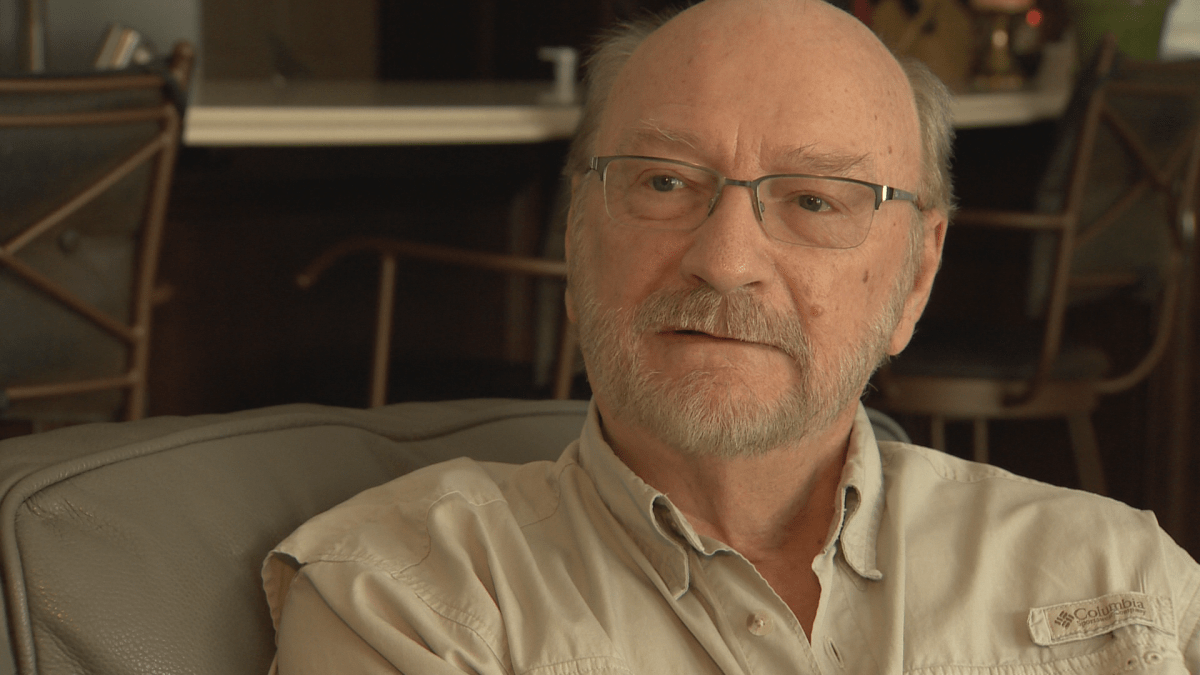There’s been a mixed reaction to a judge’s ruling that says the law that makes nursing home workers an essential service, is unconstitutional.

The ruling bars workers from striking, at least until the law is changed, but that has left family members wondering what’s next.
Stuart Lyons, whose 88-year-old mother resides at the Lakeview Manor in Riverview, is growing increasingly frustrated with the status of the nursing home dispute.
READ MORE: New Brunswick nursing home workers fire back after province says negotiations at impasse
He says it’s one thing to follow constitutional rights and case law, but says people who are actually residing in nursing homes are being left out.
“I thought it was actually a very unintelligent decision,” Lyon says. “Actually, I found it was a very cold decision, not very well thought out. I felt that the decision did not reflect the needs of the residents or of the families.”
The ruling, handed down Tuesday by Chief Justice Tracey DeWare, of the province’s Court of Queen’s Bench, upheld a New Brunswick Labour and Employment Board ruling on the Essential Services in Nursing Homes Act this week, stating she “cannot conclude there is an error that would warrant the intervention of this court.”
READ MORE: New Brunswick nursing home workers protest turns physical
That means the LPNs and resident attendants would be allowed to strike, but the judge did grant a request from the province and issued a six-month stay allowing the government “sufficient opportunity to render the legislation charter compliant.”

Get daily National news
“The negotiations matter, and the matter with this legislation are two separate things, but one affects the other for sure,” says Jodi Hall, the executive director of the New Brunswick Association of Nursing Homes.
“Although we were granted this stay with this ruling, it’s not lost on us that it’s a six-month window and we remain very committed to continue to find a negotiated solution.”
But a strike shouldn’t be an option, Lyons says.
“There needs to be an outcry for these residents in the nursing homes,” he says. “For someone to step up and actually say, ‘No, this is wrong. We do not walk out on people who need care.'”
Gerry Mallais, whose 83-year-old aunt is bedridden with Alzheimer’s in Villa Providence in Shediac, says he was hoping this issue would have been already resolved.
Mallais says it’s back to the waiting game.
“I’m hoping that within (the) six months, that both parties can sit down and they have to be reasonable on both sides,” he says.
A statement sent out by the New Brunswick Council of Nursing Home Unions, which represents over 4,000 workers across the province, calls on the provincial government to immediately recall the legislature to find a resolution.
Wages and working conditions have been essential elements to the ongoing dispute, but Sharon Teare, the council’s president, also said in the statement, “The recruitment and retention crisis in nursing homes cannot wait (six) months.”
READ MORE: ‘It just gets worse’: Resident, families, former staff voice care concerns at Ontario nursing home
The council has called for unrestricted binding arbitration.
A statement sent Wednesday from Dorthy Shephard, the province’s Social Development minister, says the stay order will provide people with peace of mind while government reviews options.
The stay order remains in effect until January 2, meaning nursing home workers won’t be able to walk off the job for at least the next six months.
Calls made by Global News to Sharon Teare, the president of the New Brunswick Council of Nursing Home Unions, were not returned.
Neither Premier Blaine Higgs or Social Development Minister were made available for an interview and we were referred to the statement released Wednesday.
- Liberal MP requests change to return-to-office policy for public servants
- Trump threatens to block opening of Gordie Howe International Bridge
- Transport Canada job cuts could lead to public safety risks, union warns
- Starmer’s chief of staff resigns over Mandelson ambassador appointment despite Epstein ties










Comments
Want to discuss? Please read our Commenting Policy first.